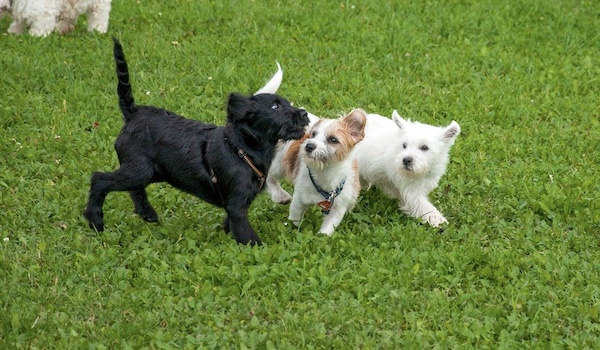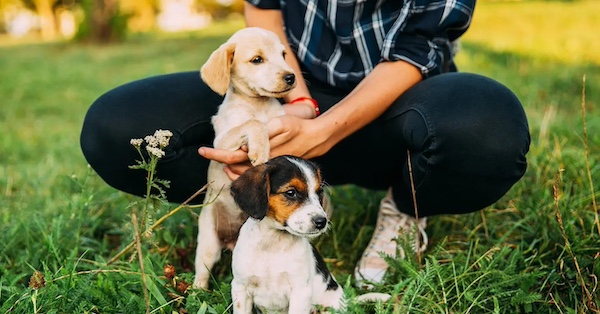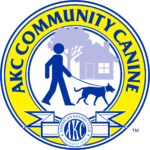Socialization is one of the most critical aspects of raising a happy, well-behaved dog. It involves exposing your puppy to a variety of experiences, people, animals, and environments to help them grow into a confident and balanced adult dog.
The early weeks of a puppy’s life, particularly between 3 and 14 weeks of age, are a critical period for socialization. During this time, puppies are especially receptive to new experiences, making it the perfect window to shape their behavior and temperament for life. In this post, we’ll explore the importance of early socialization, its benefits, key experiences to focus on, and tips for success.
What is Socialization?
Socialization is the process of teaching your puppy to be comfortable in the world around them. It involves exposing them to a wide range of stimuli—people, animals, sights, sounds, and environments—so they can learn how to react appropriately and confidently.
The primary goal of socialization is to help your puppy become a well-adjusted adult dog. Socialization teaches them how to navigate the world without fear or aggression, whether it’s meeting a new person, encountering a loud noise, or visiting an unfamiliar place. By introducing your puppy to these experiences early, you can set the foundation for a lifetime of positive behavior.
Benefits of Early Socialization
Early socialization offers numerous benefits for your puppy’s development and long-term behavior. Here are some of the key advantages:
Confidence Building
Socialized puppies are less likely to be fearful or anxious in new situations. When a puppy learns to encounter new environments, people, and animals with confidence, they’re better equipped to handle the unexpected as they grow.
Reducing Fear and Anxiety
Lack of socialization can lead to phobias and fear-based behaviors in adulthood, such as aggression or avoidance. Early exposure helps your puppy develop a positive association with new experiences, reducing the likelihood of fear or anxiety later on.
Improved Behavior
Socialization promotes appropriate responses to various stimuli. Puppies that are socialized early are less likely to react aggressively or fearfully to new situations, making them easier to train and manage as adults.
Better Social Skills
Early socialization helps puppies learn how to interact appropriately with other dogs and humans. This reduces the risk of behavior problems such as excessive barking, jumping, or rough play.
Easier Training
Socialized puppies are generally more focused and adaptable during training sessions. They’re better able to concentrate in different environments and less likely to be distracted by unfamiliar sights or sounds.
Key Socialization Experiences

To fully socialize your puppy, focus on introducing them to a variety of experiences during their critical socialization period. Here are some key areas to address:
Meeting New People
Introduce your puppy to individuals of all ages, appearances, and behaviors. This includes adults, children, and people wearing hats, sunglasses, or uniforms. Ensure interactions are positive, with plenty of treats and praise to reinforce good behavior.
Interacting with Other Dogs and Animals
Allow your puppy to interact with other dogs in a controlled, safe environment. If possible, introduce them to well-behaved, vaccinated dogs to ensure positive encounters. Exposure to other animals, such as cats or small pets, can also be beneficial if they’ll share a household or neighborhood.
Exposure to Different Environments
Take your puppy to various locations, such as parks, busy streets, or quiet trails. Let them walk on different surfaces like grass, pavement, sand, or gravel. Introduce them to common sights and sounds, such as bicycles, cars, or doorbells.
Handling and Grooming
Get your puppy used to being touched, brushed, and handled. Gently handle their paws, ears, and mouth to prepare them for grooming or vet visits. Reward them with treats and praise to create positive associations with being handled.
Tips for Effective Socialization
Successful socialization requires planning, patience, and positive reinforcement. Here are some tips to help you make the most of this critical period:
Start Early
Begin socializing your puppy as soon as you bring them home, keeping in mind the critical socialization period. However, ensure they have received their initial vaccinations before exposing them to high-risk environments like public parks.
Go at Your Puppy’s Pace
Every puppy is different, so pay attention to their comfort level. If they seem scared or hesitant, take a step back and reintroduce the experience more gradually.
Use Positive Reinforcement
Reward your puppy with treats, toys, or praise every time they respond positively to a new experience. Positive reinforcement helps them associate these experiences with good outcomes.
Gradually Increase Complexity
Start with simple, low-stress experiences and build up to more complex situations as your puppy becomes more confident. For example, begin by introducing your puppy to a quiet street before taking them to a bustling park.
Ensure Safety
Make sure all interactions are safe and positive. Avoid situations where your puppy might feel overwhelmed or threatened, as negative experiences during this period can have lasting effects.
Practice in Varied Settings
Expose your puppy to a range of environments and scenarios to generalize their behavior. For example, practice leash walking in different locations so your puppy learns to stay calm and focused no matter where they are.
Socialization Mistakes to Avoid
While early socialization is crucial, it’s equally important to approach it correctly to avoid unintended consequences. Here are some common mistakes to steer clear of:
- Overwhelming Your Puppy
Introducing too many new experiences at once can be counterproductive. Overwhelmed puppies may develop fear or anxiety instead of confidence. - Forcing Interactions
If your puppy is scared or hesitant, don’t push them into an interaction. Let them approach new experiences at their own pace to build trust. - Skipping Socialization
Neglecting socialization during the critical period can lead to long-term behavior problems such as fear, aggression, or difficulty adapting to new situations. - Using Punishment
Punishing your puppy during socialization can create negative associations and increase fear or anxiety. Always use positive reinforcement to encourage good behavior.
Conclusion
Early socialization is a vital part of raising a confident, well-behaved dog. By introducing your puppy to a variety of experiences, people, animals, and environments during their critical development period, you’re setting them up for a lifetime of positive interactions and balanced behavior. Remember, socialization is about creating positive associations and building your puppy’s confidence in the world around them.
Take the time to start socializing your puppy today, and watch as they grow into a happy, well-adjusted companion. With patience, consistency, and plenty of positive reinforcement, you’ll be giving your puppy the best possible start in life.





